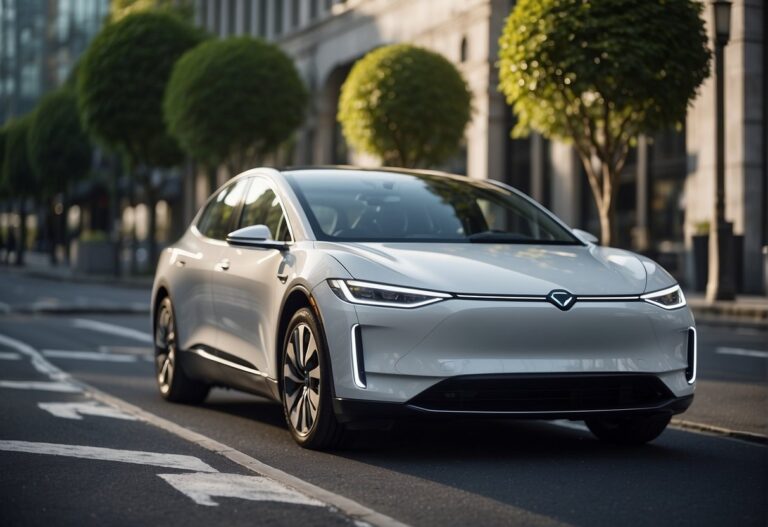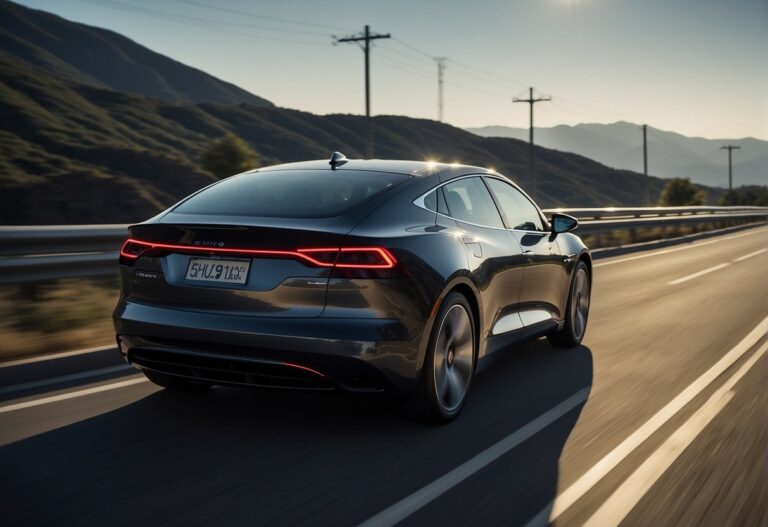Electric cars have become increasingly popular in recent years due to their potential to reduce greenhouse gas emissions and improve air quality. They are often seen as a more environmentally friendly alternative to gasoline cars, which emit harmful pollutants into the air. However, the environmental impact of electric cars versus gasoline cars is a complex issue that requires careful consideration.

One factor to consider is the source of electricity used to power electric cars. If the electricity comes from fossil fuel power plants, the environmental benefits of electric cars may be limited. On the other hand, if the electricity comes from renewable energy sources such as wind or solar power, the environmental impact of electric cars can be significantly reduced. Additionally, the production of electric cars requires the mining and processing of rare earth metals, which can have negative environmental impacts.
Another factor to consider is the fuel efficiency of electric cars versus gasoline cars. Electric cars are generally more fuel-efficient than gasoline cars, which means they require less energy to travel the same distance. This can result in lower greenhouse gas emissions and reduced environmental impact. However, the manufacturing and disposal of electric car batteries can also have environmental consequences. Overall, the environmental impact of electric cars versus gasoline cars depends on a variety of factors, including the source of electricity, the fuel efficiency of the vehicles, and the materials used in their production.
Comparative Analysis of EV and Gasoline Car Emissions
Lifecycle Emissions: From Manufacturing to Disposal
When it comes to the overall carbon footprint, electric vehicles (EVs) are generally considered to be more environmentally friendly than gasoline cars. However, the lifecycle emissions of both types of vehicles depend on various factors such as the energy source used to produce electricity and the type of fuel used in gasoline cars.
A study conducted by Reuters analyzed data from the Argonne National Laboratory model to determine at what point an average EV becomes cleaner than an equivalent gasoline car. The study found that EVs become cleaner than gasoline cars after driving about 20,000 miles. This is because the emissions generated during the manufacturing process of EVs are higher than gasoline cars due to the production of batteries. However, over the lifespan of the vehicle, EVs emit fewer greenhouse gases than gasoline cars.
Tailpipe Emissions and Air Quality Concerns
Tailpipe emissions are a significant source of air pollution and contribute to climate change. Gasoline cars emit a range of pollutants such as carbon monoxide, nitrogen oxides, and particulate matter, which can have negative health impacts on humans and the environment.
On the other hand, EVs emit zero tailpipe emissions. However, the environmental benefits of EVs depend on the source of electricity used to charge them. If the electricity comes from renewable sources such as wind or solar power, then the carbon footprint of EVs is significantly lower than that of gasoline cars. However, if the electricity is generated from coal or other fossil fuels, then the carbon emissions from EVs are still present, albeit at a lower rate than gasoline cars.
In conclusion, while EVs have a higher carbon footprint during the manufacturing process, they emit fewer greenhouse gases over their lifespan compared to gasoline cars. Additionally, EVs offer the significant benefit of zero tailpipe emissions, which can improve air quality and reduce the negative health impacts associated with gasoline cars. However, the environmental benefits of EVs depend on the source of electricity used to charge them.
Energy Sources and Efficiency
Electricity Generation and Renewable Energy Integration
One of the key factors that influence the environmental impact of electric cars versus gasoline cars is the source of the electricity used to power them. In general, electric cars produce fewer emissions than gasoline cars, but this is only true if the electricity used to charge them comes from clean, renewable sources. If the electricity comes from coal-fired power plants, the environmental benefits of electric cars are significantly reduced.
Fortunately, the energy mix in many parts of the world is shifting towards renewable sources such as solar, wind, and hydroelectric power. As more renewable energy is integrated into the electrical grid, the environmental benefits of electric cars will become even more pronounced.
Fuel Economy and Energy Consumption Patterns
In addition to the source of the electricity used to power them, another important factor that affects the environmental impact of electric cars versus gasoline cars is fuel economy. Electric cars are generally more efficient than gasoline cars, meaning they require less energy to travel the same distance. This is because electric motors are more efficient at converting energy into motion than gasoline engines.
However, the energy consumption patterns of electric cars and gasoline cars are different. Gasoline cars consume energy directly from the fuel they burn, while electric cars consume energy indirectly through the electricity used to charge their batteries. This means that the overall environmental impact of electric cars depends on the energy mix used to generate the electricity they consume.
To maximize the environmental benefits of electric cars, it is important to use renewable sources of energy to power them. In addition, efforts should be made to increase the efficiency of the electrical grid and energy storage systems, which will help to reduce the environmental impact of electric cars even further.
Frequently Asked Questions
What are the environmental advantages of electric cars compared to gasoline vehicles?
Electric cars have several environmental advantages over gasoline vehicles. First, electric cars produce zero tailpipe emissions, which means they do not emit harmful pollutants into the air. Second, electric cars are more energy-efficient than gasoline vehicles, meaning they require less energy to travel the same distance. This means they consume less energy and produce less pollution. Third, electric cars can be powered by renewable energy sources, such as wind or solar power, which can further reduce their environmental impact.
How do the emissions of electric cars compare to those of gasoline cars throughout their lifecycles?
Electric cars typically produce fewer greenhouse gas emissions than gasoline cars throughout their lifecycles, even after accounting for the increased energy required to manufacture their batteries. This is because electric cars emit no tailpipe emissions during operation, while gasoline cars emit significant amounts of carbon dioxide and other pollutants. However, the production and disposal of electric car batteries can be environmentally harmful if not properly managed.
What are the potential negative environmental impacts of electric car battery production and disposal?
The production and disposal of electric car batteries can have negative environmental impacts if not properly managed. Battery production requires the extraction and processing of raw materials, such as lithium and cobalt, which can have significant environmental impacts. Additionally, the disposal of batteries at the end of their life can lead to environmental contamination if not properly handled.
How does the source of electricity for charging electric cars affect their overall environmental impact?
The source of electricity used to charge electric cars can significantly impact their overall environmental impact. If electric cars are charged using electricity generated from renewable sources, such as wind or solar power, they can have a significantly lower environmental impact than gasoline cars. However, if electric cars are charged using electricity generated from fossil fuels, their environmental impact can be similar to or even worse than gasoline cars.
Can the increased demand for electricity by electric cars lead to negative environmental consequences?
The increased demand for electricity by electric cars could potentially lead to negative environmental consequences if the electricity is generated from fossil fuels. However, if the electricity is generated from renewable sources, such as wind or solar power, the increased demand for electricity from electric cars could actually help to reduce greenhouse gas emissions and other pollutants.
What are the long-term environmental benefits of transitioning to electric vehicles from gasoline-powered cars?
The long-term environmental benefits of transitioning to electric vehicles from gasoline-powered cars are significant. Electric vehicles produce fewer greenhouse gas emissions and other pollutants than gasoline-powered cars, which can help to reduce air pollution and mitigate the impacts of climate change. Additionally, electric vehicles can be powered by renewable energy sources, such as wind or solar power, which can further reduce their environmental impact.



